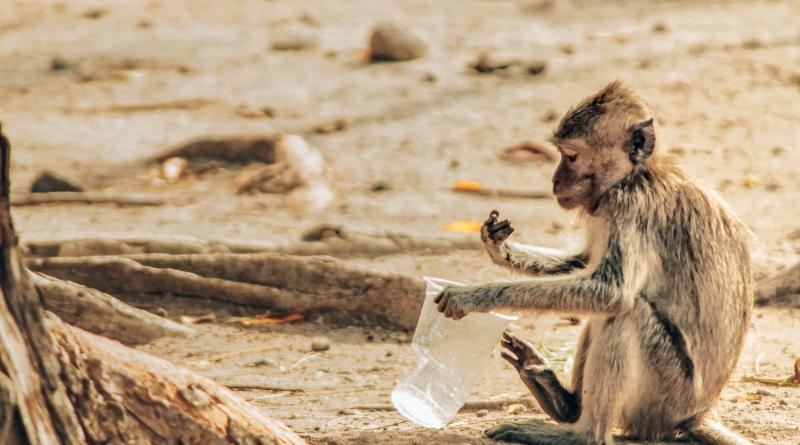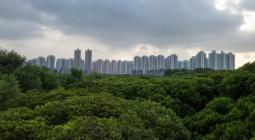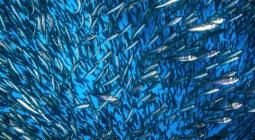Brazil's biodiversity at risk in projected global warming overshoot

RIO DE JANEIRO, June 28 (Thomson Reuters Foundation) - Many of Brazil’s unique creatures, from a minuscule orange frog to the collared titi monkey, could face a bleak future if global warming surpasses temperature targets set in the 2015 Paris Agreement on climate change, scientists have warned.
Even if temperatures are later lowered back below the key limits of 1.5 to 2 degrees Celsius of warming - such as by sucking carbon from the air - damage would be irreversible, according to study published this week.
As emissions continue to rise swiftly toward those limits - and climate action lags - “overshoot scenarios” are now being considered, said Andreas Meyer, a co-author of the report by the University of Cape Town (UCT) and University College London (UCL).
That would typically be a period of excessive warming lasting several decades with "carbon dioxide removal" technology - not yet fully developed or possible at scale - used to try to reverse dangerous temperature rises by 2100, the study here said.
Hugely controversial "geoengineering" techniques here, such as blocking some of the sunlight reaching the planet by spraying reflective particles into the upper atmosphere or installing space mirrors, also are being researched as a potential avenue to limiting deadly temperature hikes.
But any period of temperature overshoot would likely cause huge harm to biodiversity and ecosystems worldwide, according to the study’s scientists.
“There is no magical solution if we surpass the limits of the Paris Agreement. It is a fallacy that this could be solved later,” said Meyer, who is a research fellow at the UCT’s African Climate and Development Initiative in South Africa.
“It is very probable that irreversible impacts would be suffered in the meantime,” he told the Thomson Reuters Foundation.
The study was published in the journal Philosophical Transactions of the Royal Society B: Biological Sciences just one day after talks here to draft a global agreement to halt nature loss faltered ahead of a U.N. biodiversity summit in December.
‘NO SILVER BULLET’
The research found that Brazil - which is home to the biggest share of the Amazon - was likely to be particularly at risk of heatwaves under a 2 degrees Celsius overshoot scenario.
Meyer said this could lead to the “replacement of forests with grasslands” and, ultimately, the loss of a vital global system to absorb excess carbon dioxide emissions and stave off climate change.
The Amazon basin has lost about a fifth of its original forests and scientists warn that growing deforestation under Brazil’s far-right President Jair Bolsonaro is pushing the rainforest towards a tipping point of 20-25% losses.
At that point, the jungle is likely to dry out and become savanna, accelerating climate change impacts including species extinctions here, they say.
One million animal and plant species are currently threatened with extinction - more than ever before in human history.
In the Amazon alone, more than 10,000 species are at risk of disappearing due to the clearing of the rainforest for cattle ranching, soy farming and other uses.
The new study looked at more than 30,000 species globally using an overshoot simulation in which global temperature surpassed 2 degrees Celsius between 2041 and 2102.
In such a situation, the research found that 728 species from Brazil’s Amazon region and other Brazilian ecosystems would be exposed to unsafe temperatures.
To avert such scenarios, some experts have argued that carbon dioxide removal technologies should be prioritised as a solution.
A report by the U.N.’s Intergovernmental Panel on Climate Change (IPCC) in April found that extracting carbon dioxide from the atmosphere will now be key to achieving the Paris Agreement goals as global emissions continue to rise.
However, study co-author Joanne Bentley said that removal technologies, as well as nature-based solutions such as planting more carbon-dioxide-absorbing trees, come with their own risks and cannot reverse biodiversity losses.
“It is important to realise that there is no silver bullet solution for mitigating climate change impacts,” said Bentley, also of the UCT’s African Climate and Development Initiative.
“Should we find ourselves overshooting the 2 degrees Celsius global warming target, we could pay dearly in terms of loss of biodiversity, compromising the provision of the ecosystem services that we all rely on,” she added.
Originally published on: here (Reporting by Andre Cabette Fabio; editing by Kieran Guilbert and Laurie Goering. (Please credit the Thomson Reuters Foundation, the charitable arm of Thomson Reuters. Visit news.trust.org/climate))







